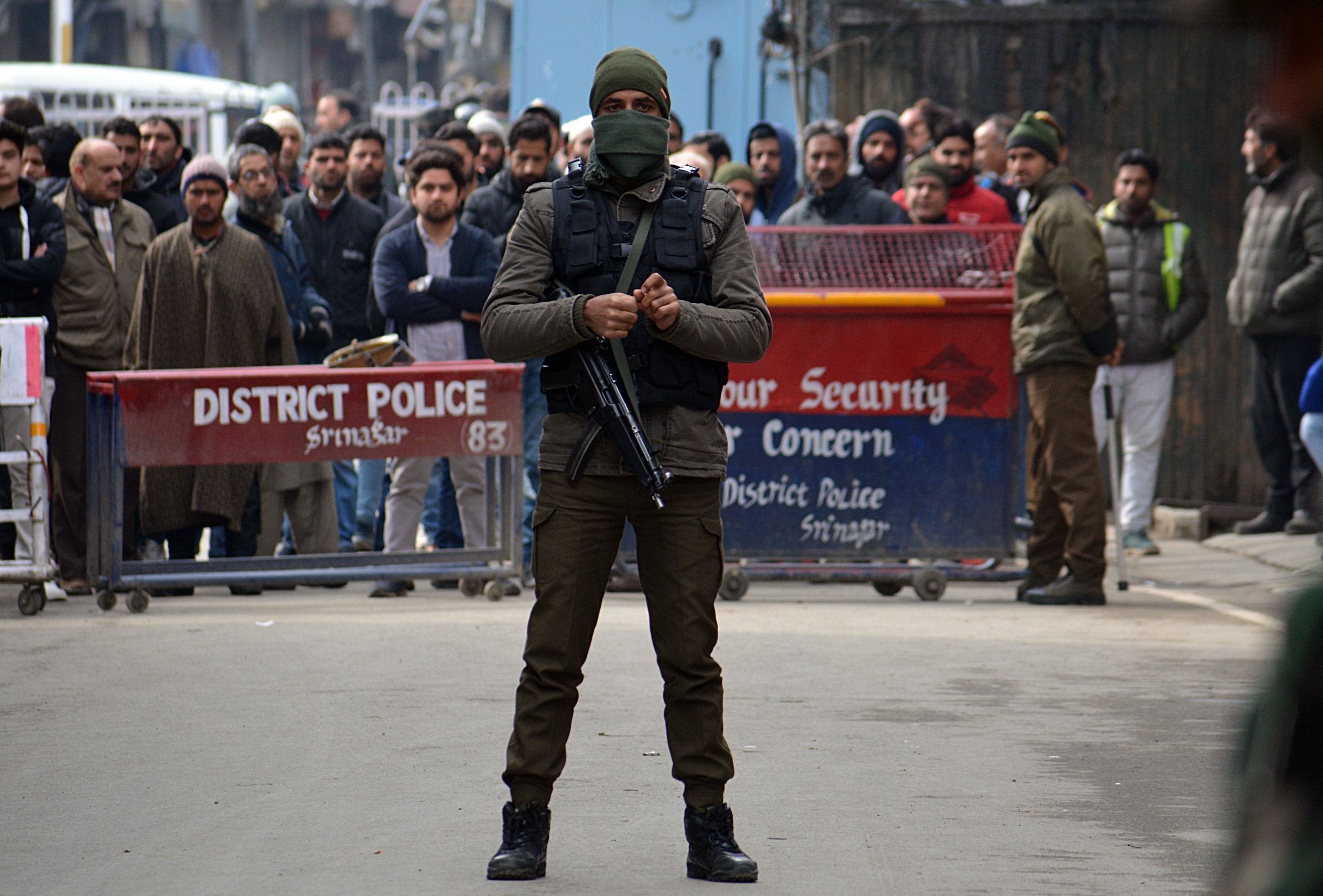India and Pakistan edge towards conflict – but sense should prevail
The scope for an accidental proxy war breaking out is apparent. But the stakes being so high, there is probably more chance that the superpowers will restrain rather than egg on their regional clients

When a car bomb killed 46 Indian paramilitary police in Kashmir a fortnight ago, the Indian prime minister, Narendra Modi, promised a “jaw-breaking response”.
He was as good as his word, and it has now been delivered, breaking plenty of bones. India claims to have killed “a very large number” of Islamist militants in a training camp in the Pakistan-ruled part of Kashmir, a territory that has been disputed since the British left the subcontinent in 1947. The group, Jaish-e-Mohammed (JeM) claimed responsibility for the attack on the Indian troops, and have now found themselves losing some of their own. It marks the first aerial bombing in the region since the Indo-Pakistan war of 1971. It may not be the last of the violence in this region, newly agitated by a rise in Islamist activity, which has overlain ancient religious, national jealousies and superpower rivalries. It marks a new front in the war on terror.
The danger of escalation is obvious, and Pakistan has said it has scrambled fighter planes in response to the Indian attack. If the Indians choose not to make further bombing raids – and they have no immediate justification – or take other direct military action against the insurgents, then the tensions may subside, for now. If not, then a gradual slide into low-level warfare seems inevitable. Even that might not develop into an escalation, but, as ever in the relationship between India and Pakistan, there are other agendas at work, with China, Russia and America all interested parties in the scramble for regional influence. The Islamic Republic of Pakistan has historically been close to the US and, more recently, China; the Hindu/nationalistic India was always inclined towards friendship with Russia, and once fought a brief border war with China.
Like the Middle East, then, the scope for an accidental proxy war breaking out is apparent. However, volatile as the situation is, it is not a perfect parallel, and that should give the world some cause for hope.
First, another conflict between India and Pakistan would be a vastly larger affair than any of the proxy wars that have raged across the Middle East in recent years, simply because the Indian subcontinent is a more significant and valuable territory in the great game of geopolitics, and just as it was when the British and the Russian czars rattled their sabres across the northwest frontier a century and a half ago.
There is more chance, in other words, of one or other sides, and their allies, losing a great deal in any regional war, compared with, say Syria. The stakes being greater, there is probably more chance that the superpowers will restrain rather than egg on their regional clients. Sovereignty over the beautiful but poor region of Kashmir is a passionate business for the Pakistanis and the Indians, but it is of no interest to Washington, Beijing or Moscow.
Second, and by the same token, the authorities in Islamabad know how much they have to lose by picking a fight with their more populous and economically powerful neighbour. The rise of the Indian economy is the biggest single change of circumstance since the 1971 war, and the balance of power between the two states has altered greatly to India’s advantage. India is, still, a democracy, and realises too how much is at stake with a war over the marginal territory of Kashmir, which has been de facto portioned for three-quarters of a century. War, in other words, is not worth it, and the Indians have obviously been careful to make sure that they attacked terrorists, not Pakistani installations on some pretext.
Still, the existence of another band of determined and murderous Islamist terrorists on Pakistani-controlled territory hardly inspires confidence in the future stability of the region. Pakistan’s relationship with the Taliban and their successors has been a complicated one, and subject to the very real limits of the Pakistani government’s authority in tribal regions. Whatever the Indians have done, and whatever the detail about the attacks on Indian forces, the Pakistani military would be well advised to move to contain or, preferably, eliminate JeM. It is quite simply in the best interests of the fragile stability of their state. Given that both India and Pakistan possess nuclear weaponry, it is also a matter of vital concern to the whole world.
Join our commenting forum
Join thought-provoking conversations, follow other Independent readers and see their replies
Comments
Bookmark popover
Removed from bookmarks